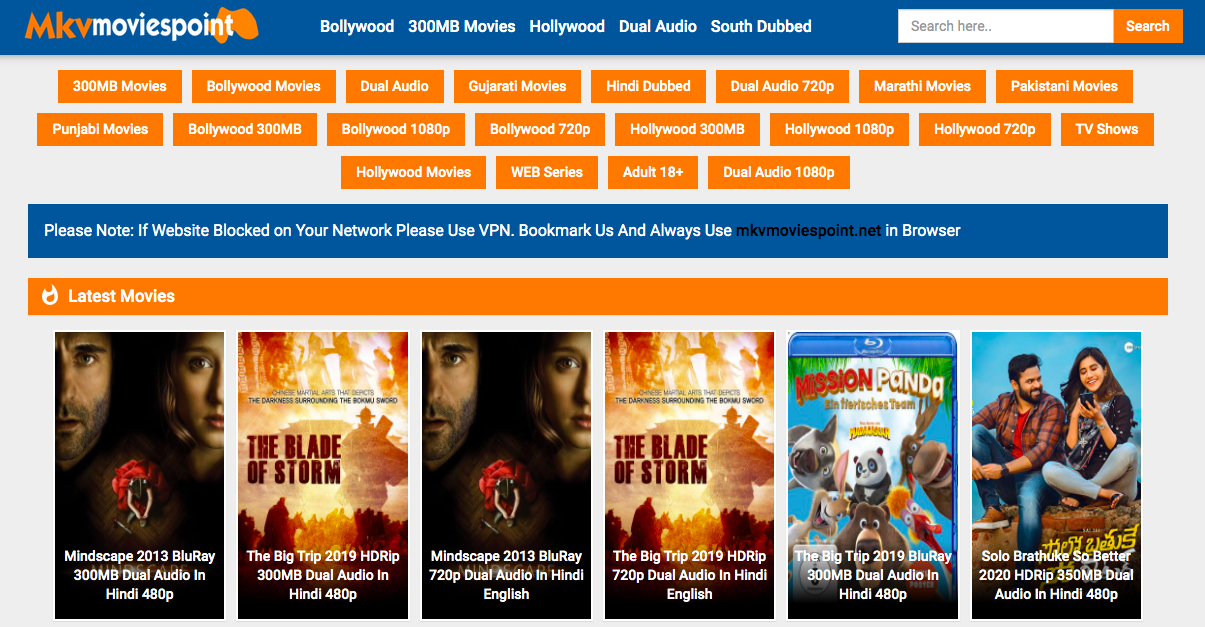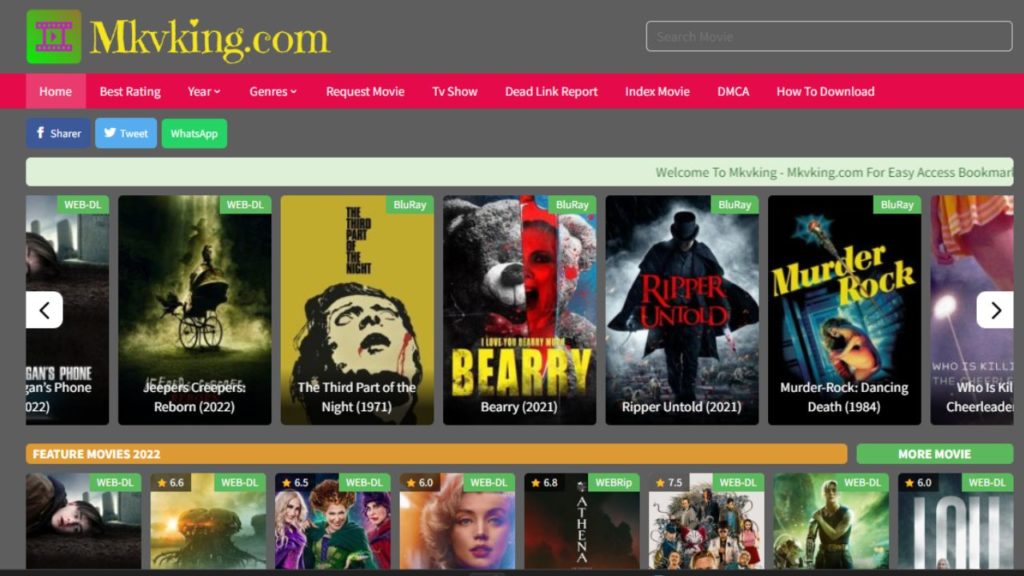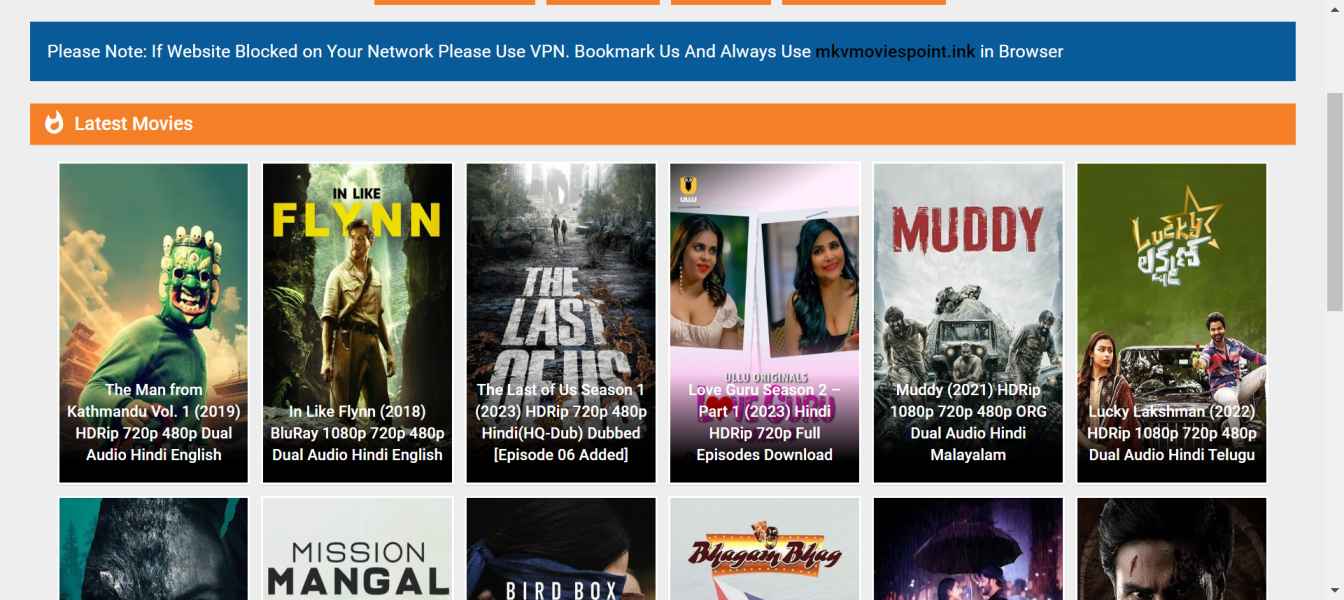Unleashing The Power Of MKV Movie Points: Your Ultimate Guide To The Best Video Format
So, you've probably heard about MKV movie points, right? Or maybe you're scratching your head, wondering what the heck this is all about. Let me break it down for you, buddy. MKV, short for Matroska Video, is not just another video format; it's a game-changer in the world of digital entertainment. This bad boy can hold multiple audio, video, and subtitle streams in one file, making it a favorite among movie enthusiasts and tech-savvy folks. So, if you're looking to level up your movie-watching experience, you're in the right place.
Now, why should you care about MKV? Well, imagine having a single file that gives you the option to switch between different audio tracks, subtitles, and even chapters without needing separate files. Sounds awesome, right? That's the magic of MKV. In this guide, we're going to dive deep into everything you need to know about MKV movie points, from its benefits to how you can make the most out of it. Let's get started!
Before we jump into the nitty-gritty, let's clear something up. MKV isn't just some fancy buzzword. It's a format that's here to stay, and understanding its ins and outs can seriously enhance your media experience. Whether you're a casual movie watcher or a hardcore cinephile, MKV has something to offer for everyone. So, buckle up, because we're about to take you on a journey through the world of MKV movie points.
- Wcostreamcom Your Ultimate Streaming Destination For Free Movies
- Flatio Revolutionizing The Way We Create And Share Music
Table of Contents
- What is MKV?
- Benefits of Using MKV
- How to Play MKV Files
- Converting MKV Files
- MKV vs MP4
- MKV Quality Factors
- MKV Compatibility
- Subtitles in MKV
- MKV Metadata
- Frequently Asked Questions
What is MKV? The Ultimate Container Format
Alright, let's get into the meat of the matter. MKV, or Matroska Video, is what we call a container format. Think of it like a digital toolbox that holds all your movie components in one place. Unlike other formats that limit you to a single audio or subtitle track, MKV lets you pack in multiple tracks, chapters, and even metadata. This makes it super versatile and perfect for anyone who wants a more customizable viewing experience.
Why Choose MKV?
Here's the deal: MKV isn't just about convenience; it's about quality. The format supports lossless compression, meaning your videos can retain their original quality without taking up too much space. Plus, it's open-source, which means no proprietary restrictions. You can use it freely without worrying about licensing issues. Now, that's what I call freedom!
- Why Noodlemag Is Your Ultimate Destination For Food Enthusiasts
- Why Marcacom Is Your Ultimate Source For Sports News And Analysis
Benefits of Using MKV: Why It's the Best
So, why should you switch to MKV? Let me give you a few solid reasons. First off, MKV supports virtually any codec, so you can use your favorite video and audio formats without a hitch. Second, it's ridiculously flexible. Need to add more subtitles or audio tracks? No problem. MKV has got you covered. And let's not forget about the metadata. You can tag your files with all sorts of useful info, like the movie title, director, and even a synopsis.
Key Advantages
- Customizable: Add as many audio and subtitle tracks as you want.
- Quality: Supports lossless compression for top-notch video quality.
- Open-Source: No licensing fees or restrictions.
- Flexible: Works with virtually any codec.
How to Play MKV Files: The Ultimate Guide
Now that you know why MKV rocks, let's talk about how to play these files. The good news is, most modern media players support MKV out of the box. VLC, for example, is a fantastic option. It's free, open-source, and can handle pretty much any file you throw at it. If you're on Windows, you might also want to check out MPC-HC or KMPlayer. And for Mac users, VLC is still your best bet.
Tips for Smooth Playback
Here are a few tips to ensure smooth playback:
- Make sure your media player is up to date.
- Install the necessary codecs if your player doesn't support them by default.
- Check your system's hardware acceleration settings for better performance.
Converting MKV Files: When and Why
While MKV is awesome, there might be times when you need to convert it to another format. Maybe you're sharing a file with someone who doesn't have an MKV-compatible player, or perhaps you want to upload it to a platform that only accepts certain formats. Whatever the reason, there are plenty of tools out there to help you with the conversion.
Top Tools for MKV Conversion
- HandBrake: A free and powerful tool for converting MKV to MP4 or other formats.
- FFmpeg: A command-line tool for advanced users who need more control over the conversion process.
- Online Converters: If you're short on time, there are plenty of online services that can handle the job for you.
MKV vs MP4: Which One Should You Choose?
This is a question that pops up a lot. Both MKV and MP4 are great formats, but they have their own strengths and weaknesses. MP4 is more widely supported, especially on mobile devices, but MKV offers more flexibility and better quality. If you're looking for a format that works everywhere, MP4 might be the way to go. But if you want the best possible experience, MKV is the clear winner.
Key Differences
- Compatibility: MP4 is more widely supported, especially on mobile devices.
- Flexibility: MKV supports more codecs and features, like multiple audio and subtitle tracks.
- Quality: MKV offers better quality due to its support for lossless compression.
MKV Quality Factors: What Affects Your Viewing Experience
When it comes to MKV, quality is king. But what exactly determines the quality of an MKV file? Well, it all comes down to the codecs used, the bitrate, and the resolution. A higher bitrate usually means better quality, but it also means larger file sizes. Similarly, higher resolutions give you sharper images, but they require more storage space and processing power.
How to Optimize MKV Quality
Here are a few tips to get the most out of your MKV files:
- Use high-quality codecs like H.264 or H.265.
- Set an appropriate bitrate based on your desired quality and file size.
- Choose a resolution that matches your display capabilities.
MKV Compatibility: Devices and Platforms
One of the biggest concerns people have about MKV is compatibility. While it's true that not all devices support MKV out of the box, the situation is getting better every day. Most modern media players, including VLC and Kodi, can handle MKV files without any issues. And if you're using a smart TV or a gaming console, chances are it supports MKV as well.
Common Devices That Support MKV
- Smart TVs from brands like Samsung and LG.
- Gaming consoles like PlayStation and Xbox.
- Streaming devices like Roku and Apple TV.
Subtitles in MKV: Enhancing Your Viewing Experience
Subtitles are a big deal, especially if you watch foreign films or need them for accessibility reasons. MKV makes it super easy to add and manage subtitles. You can include multiple subtitle tracks in a single file, and switch between them on the fly. Plus, you can customize the appearance of the subtitles to suit your preferences.
How to Add Subtitles to MKV
Adding subtitles to an MKV file is a breeze. Most media players allow you to load external subtitle files, but if you want to embed them directly into the file, you can use tools like MKVToolNix. This way, you'll never lose your subtitles, even if you move the file around.
MKV Metadata: Adding Extra Info to Your Files
Metadata might sound like a techy term, but it's actually pretty simple. It's just extra information about your file, like the title, director, and release date. MKV lets you add all sorts of metadata to your files, making it easier to organize and manage your movie collection.
How to Add Metadata to MKV
Adding metadata to an MKV file is easy with tools like MKVToolNix. Just open the file, add the info you want, and save it. Now your files are not only organized but also packed with useful info.
Frequently Asked Questions About MKV
Let's wrap things up with some common questions people have about MKV.
Q: Is MKV Better Than MP4?
A: It depends on your needs. MKV offers more flexibility and better quality, but MP4 is more widely supported.
Q: Can I Play MKV on My Phone?
A: Most modern phones can play MKV files, but you might need to install a third-party app like VLC.
Q: How Do I Convert MKV to MP4?
A: You can use tools like HandBrake or FFmpeg to convert MKV to MP4.
And there you have it, folks. A comprehensive guide to MKV movie points. Whether you're a tech geek or just someone who loves watching movies, MKV has something to offer for everyone. So, go ahead and give it a try. Trust me, you won't be disappointed.
Before you go, I want to leave you with a little challenge. Try out MKV for yourself and see how it enhances your movie-watching experience. And if you have any questions or comments, feel free to drop them below. I'd love to hear from you!
- Squarespace The Ultimate Platform To Build Your Dream Website
- Pelis24 Your Ultimate Destination For Movie Entertainment

Mkvmoviespoint Watch Free Movies & Download Your Guide

Mkvmoviespoint Watch Free Movies & Download Your Guide

MKVMOVIES Point Your Ultimate Destination For Movie Enthusiasts